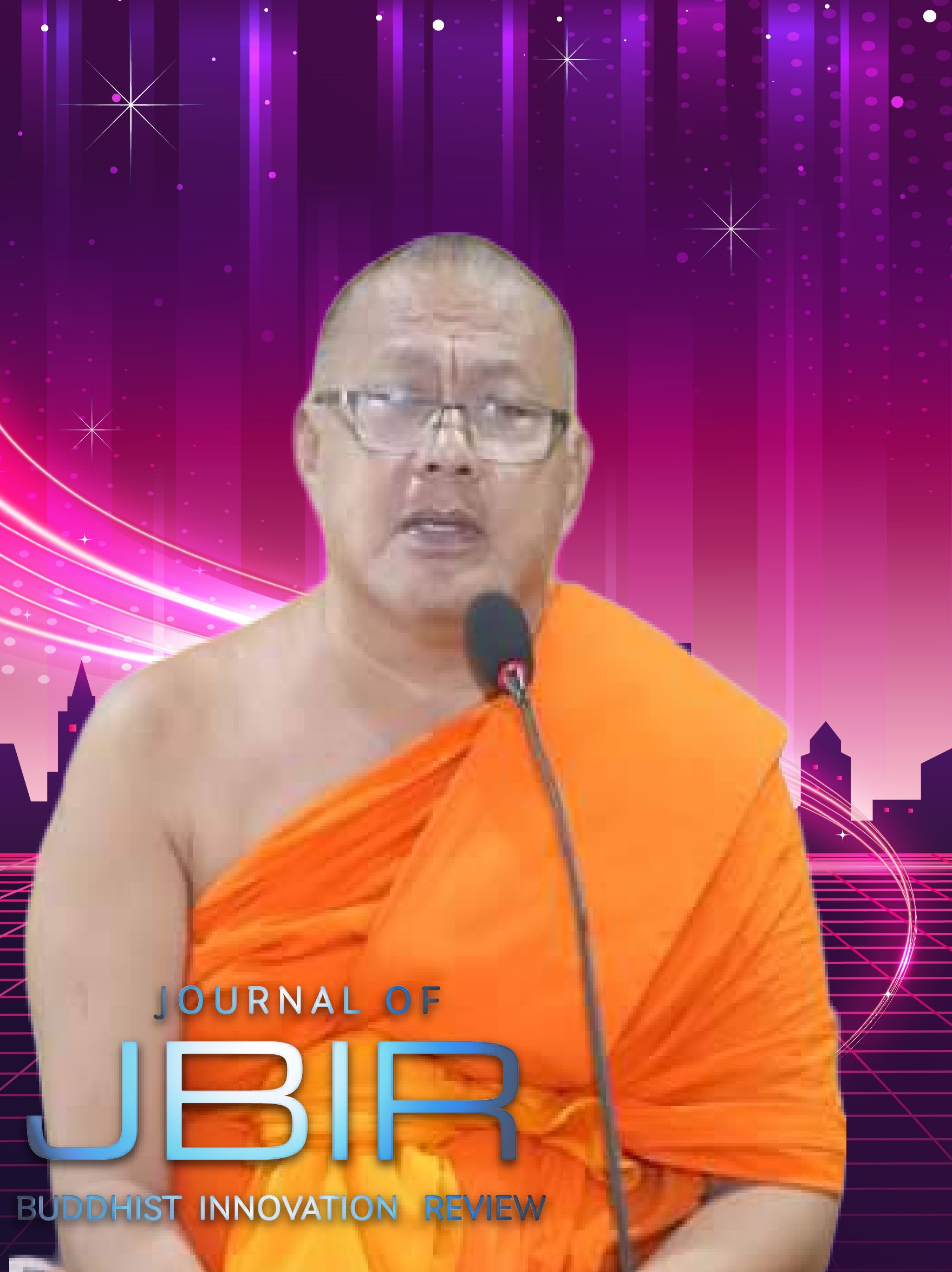Improvement Quality of Life Through Performing Duties of The Gilānupaṭṭhākas in Suphan Buri province
Main Article Content
Abstract
This research article aims to focus on these three main objectives: 1) to study the concept and Theory of quality of life development through the duties of Gilānupaṭṭhāka monks in Suphanburi Province; 2) to examine the of Buddhist principle related to quality of life development as practiced by Gilānupaṭṭhāka monks in Suphanburi Province; and 3) to present methods for enhancing quality of life through the duties of Gilānupaṭṭhāka monks in Suphanburi Province. This study employs a qualitative research methodology, by studying documents, related research, and in-depth interviews with 18 key informants, comprising a total of 18 monks/individuals. Data were analyzed, synthesized, and presented in descriptive analysis.
The research findings showed that the concept and theory of quality of life development through the duties of Gilānupaṭṭhāka monks in Suphanburi Province encompasses four key areas: 1) Physical well-being, including nutritional intake, appropriate exercise, take care of cleanliness, health checks, and suitable rest; 2) Mental well-being, which involves cultivating a meditative mind characterized by loving-kindness and mindfulness in performing duties; 3) Social relationships, wherein monks serve as a support system for the community, fostering compassion and creating health promotion networks while representing appropriate behavior as role models; and 4) Environmental management, focusing on maintaining cleanliness, greenery, and safety within the temple and community, thereby promoting good health and wellness among monks and ensuring community well-being. The study applies the principles influencing quality of life : the Four Sublime States of Mind (Brahmavihāra 4) to develop internal factors including physical and mental well-being, and the Bases of Sympathy (Sanghavatthu 4) to develop external factors including social relationships and environmental conditions. Furthermore, the result highlights the need of support from governments and responsible agencies in five key areas: knowledge dissemination, data provision, development, welfare services, and the research development of knowledge set to strengthen health promotion for monks and their communities.
Keywords: Gilānupaṭṭhākas; Quality of Life
Article Details

This work is licensed under a Creative Commons Attribution-NonCommercial-NoDerivatives 4.0 International License.
เรื่องลิขสิทธิ์/เป็นความคิดเห็นของผู้เขียน
References
Reference
Books
Elderlyhealthgroup Anamai. (2018). Guide to training in The Gilānupaṭṭhākas curriculum. Bangkok: Department of Health, Ministry of Public Health.
Lapthananon, Phinit. (2013). Health of monks B.A. 2555. Bangkok: Ministry of Public Health.
Mahachulalongkornrajavidyalaya.(1996). Thai Tripitaka Mahachulalongkornrajavidyalaya. Bangkok: MCU Press.
Phra Brahma Vajirayan. (2019). National Monks Health Constitution, B.A.2560. Bangkok: O.S. Printing House co.
Priest Hospital. (2023). Annual report 2023. Bangkok: Priest Hospital.
Journal
WHOQOL Group. (1995). The World Health Organization Quality of life assessment (WHOQOL): Position paper from the World Health Organization. Social Science and Medicine. 41 (1): 1403-1409.
Thesis
Nattanan Anālayo (Kunjaruspokin). (2022). A An Improvement Quality of Life Model Social Support and the Persistence of the Gilanupatthakas in the Region 7 Sangha Administration. A Dissertation Degree of Doctor of Philosophy (Buddhist Management). Graduate School: Mahachulalongkornrajavidyalaya University.
Phrakru Pariyatkittiwong (Pakit Thitavangso). (2024). Improvement Quality of Life Through Performing Duties of The Gilānupaṭṭhākas in Suphan Buri province. A Dissertation Degree of Doctor of Philosophy (Buddhist Studies). Graduate School: Mahachulalongkornrajavidyalaya University.
Thongchai SundarācāroPhrakhru (Thanawatthanakul). (2021). A Model of Monks’ Health Care Promotion Driving According to the Sangha Health Care Constitution in Nakhon Ratchasima Province. A Dissertation Degree of Doctor of Philosophy (Buddhist Management). Graduate School: Mahachulalongkornrajavidyalaya University.


